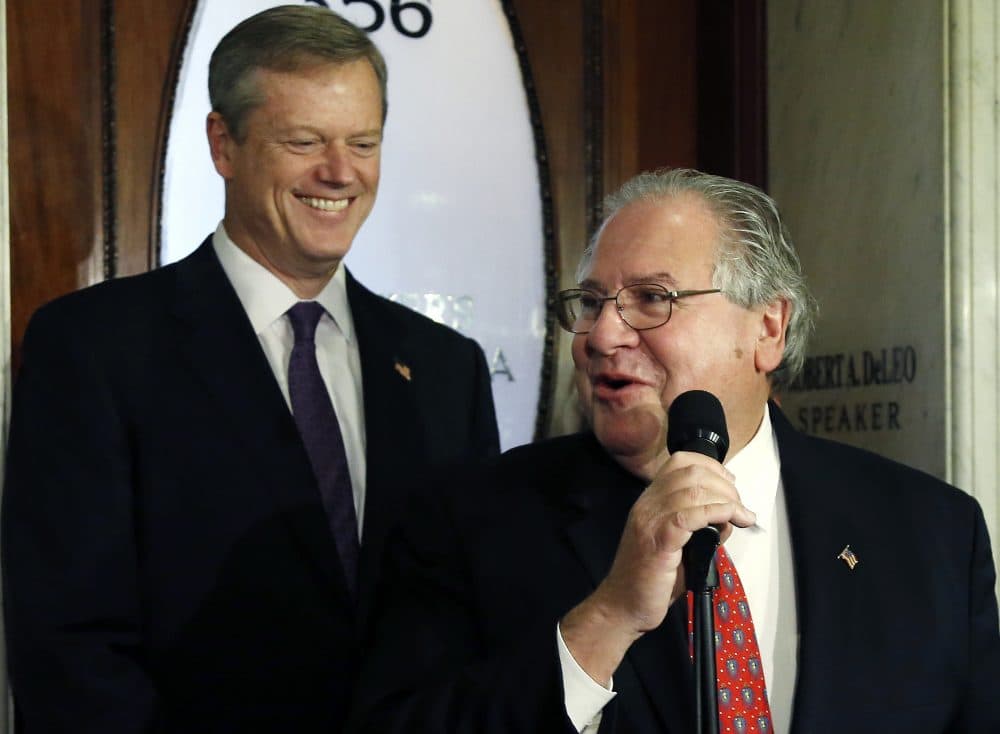Advertisement
Dear Mass. Employers: House Budget Plan Shows A Health Assessment Is Coming

The state House budget proposal, out Monday, leaves a number of questions for employers when it comes to health care. The $40.3 billion spending plan does not include a $2,000 assessment for each employee not covered by firms with 11 or more workers, which Gov. Charlie Baker proposed in January.
But the House says an assessment is coming.
Here's the deal: House budget writers heard from business groups that said $2,000 was too much, and that the fee would be unfair to employers whose workers are covered through their spouse, for example.
So the message from the House to Baker is: Keep negotiating with employer groups.
"We're cautiously optimistic that a constructive dialogue will continue between the administration and the business community that will yield a better outcome," said House Ways and Means Chairman Brian Dempsey.
Dempsey urges the administration to take each of the bullet points below into account:

The House does expect the administration will have a new assessment in place by January -- one that will generate $180 million for fiscal year 2018. That's $120 million less than the $300 million Baker estimated a revised "fair share" penalty would raise. ("Fair share" was a $295-per-worker penalty on employers created in the state's 2006 health care reform law.)
Employers are not so optimistic. Chris Geehern, executive vice president of the Associated Industries of Massachusetts, says any fee would penalize employers for a problem they didn't create.
"We will continue to look with great concern at the idea of any employer assessment, " Geehern said. "At the same time, this extra six months gives us some time to find a solution to what is a very big problem."
In addition, the House supports a request from the Baker administration to reinstall a gate of sorts that kept many lower income workers off MassHealth (the Medicaid program) under the 2006 law.
Advertisement
The Affordable Care Act removed that barrier. Baker has said that change allowed roughly 500,000 Massachusetts residents to shift from an employer plan to MassHealth or subsidized coverage through the Health Connector.
To put the "gate" back, Baker needs a waiver from the Trump administration. There's no word yet about whether U.S. Health and Human Services Secretary Tom Price supports this request.
House leaders say it's too early to say if all 500,000 people who've switched to MassHealth would get kicked off if the gate returns.
So there you have two messages for employers from the House: Expect a health care assessment of some kind next year, and you may have many low income employees who will be looking to get health insurance through work. Whether that insurance will be affordable is a different story.
The House budget proposal rejects four measures Baker proposed to hold down rising health care costs. They're outlined in this slide:

The House budget proposal does not press for any new ways to curb health care spending, although it's possible that legislation to limit prices at the state's most expensive hospitals is coming.
This article was originally published on April 10, 2017.
